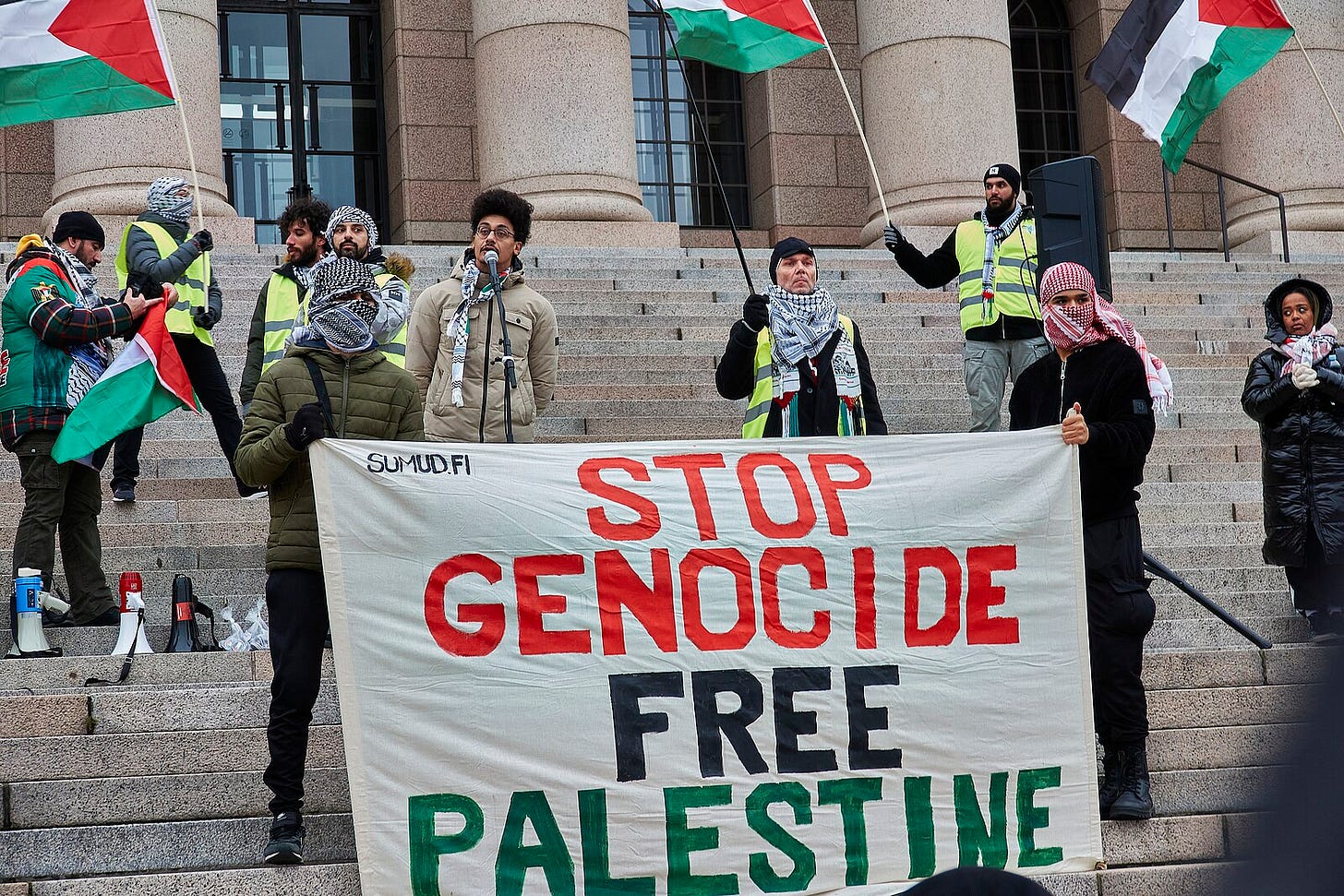World’s Leading Scholars Say Gaza Meets the Legal Definition of Genocide
The world’s foremost experts on genocide have delivered their verdict: Gaza is a genocide.
The International Association of Genocide Scholars (IAGS), a body of nearly 500 specialists from around the world, has adopted a resolution stating that Israel’s actions in Gaza meet the legal definition of genocide under Article II of the 1948 UN Genocide Convention.
The vote was decisive. With 86 percent support, the resolution leaves little ambiguity. The scholars cite mass civilian killings, deliberate starvation, forced displacement, and the systematic destruction of Gaza’s ability to sustain life.
“This is a definitive statement from experts in the field of genocide studies that what is going on on the ground in Gaza is genocide,” said Melanie O’Brien, IAGS president and professor of international law.
The declaration lands at a time when more than 63,000 killed have already been killed by Israel, the majority of them women and children. Entire neighborhoods have been leveled, aid convoys have been blocked, and disease has spread in overcrowded shelters.
Israel already faces a genocide case at the International Court of Justice, initiated by South Africa earlier this year. The International Criminal Court has issued arrest warrants for top Israeli leaders, including their Prime Minister, alongside warrants for Hamas’s military leadership.
The IAGS resolution strengthens these legal efforts. Scholars stress that their assessment is not political but based on the legal standards set out after the Holocaust, standards that define genocide as acts committed with the intent to destroy, in whole or in part, a national, ethnic, racial, or religious group.
By affirming that Gaza meets these criteria, the world’s leading genocide experts have now placed Israel’s actions in a category that history reserves for humanity’s worst crimes.
International human rights groups, Palestinian organizations, and even some Israeli NGOs have long warned of genocide in Gaza. But today’s declaration carries a particular weight: this is not the language of activists or political leaders, but the judgment of the world’s top genocide scholars.
The statement adds to the mounting pressure on governments, courts, and institutions that have so far refused to act. It leaves little space for denial and sharpens the question that history will ask of the present:
When genocide was declared, who stood against it, and who remained silent?



